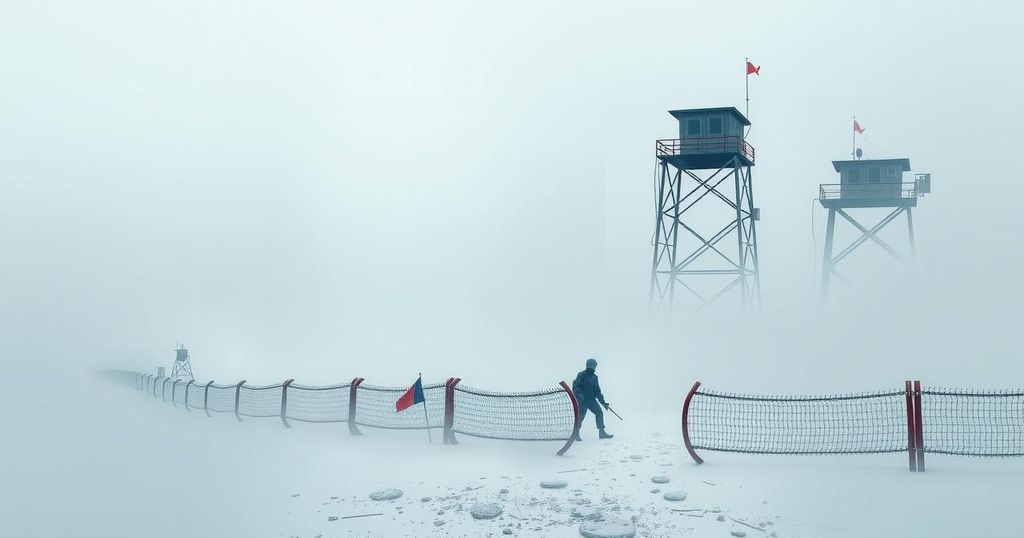The situation in Goma, Democratic Republic of Congo has deteriorated, with heavy clashes reported between Rwanda-backed M23 rebels and government forces. Residents feel trapped as bombardments intensify and road access is blocked. The United Nations has expressed serious concerns regarding the safety of civilians and the stability of the region, prompting urgent appeals for intervention.
Early Monday, tensions dramatically escalated in Goma, the capital of the North Kivu province in the Democratic Republic of Congo, as the Rwanda-backed M23 rebel group engaged in significant clashes with Congolese government forces. Residents experienced confusion and fear amidst ongoing bombardments across the city, with many reporting that they felt trapped with no safe escape routes available. Patrick Kanyagala, a taxi driver, indicated that he and his family were barricaded in their home due to the fighting, which he described as relentless since the previous day.
Muzige Gakiza, a local resident, described a dire situation outside his home, expressing urgent need for help as the violence continued unabated. Uncertainty surrounded the control of Goma, with M23 spokesman Lawrence Kayuka declaring the city’s “liberation,” whilst urging the Congolese military to surrender. Contrastingly, journalist Jimmy Bakomera reported that government troops were still present in certain areas of Goma, indicating no clear victor in the ongoing conflict.
The Uruguayan military, assisting the United Nations peacekeeping forces in Goma, confirmed that M23 was actively clashing with government forces, leading to the surrender of over 100 Congolese soldiers. During an emergency meeting of the U.N. Security Council, Bintou Keita, head of the U.N. stabilization mission, reported roadblocks preventing access to Goma and highlighted the rebels’ claim to have closed the area’s airspace. She also noted casualties among UN peacekeepers, with three killed and 11 wounded over two days.
The M23, known as the March 23 movement primarily formed by members of the Congolese Tutsi ethnic group, previously captured Goma in 2012 but withdrew under international pressure. Their current advance poses a grave risk of renewed violence in the mineral-rich Congo, which has already experienced immense human suffering with 6 million deaths attributed to war-related causes since 1996. Moreover, recent figures indicate around 400,000 individuals have been displaced this year alone due to fighting in North and South Kivu.
United Nations Secretary-General António Guterres has called for the Rwanda Defense Forces to cease their support for M23 and withdraw from Congolese territory. The U.S. Embassy in Kinshasa has advised American citizens to leave North Kivu while exit routes remain available, citing the escalating situation.
The current conflict in Goma arises from the historical tensions between the M23 rebel group and the Congolese government. The M23 group, primarily consisting of individuals from the Tutsi ethnic community, previously seized control of Goma in 2012 and has since remained a significant militant force in the region. The resurgence of hostilities threatens to revert the Democratic Republic of Congo back into a prolonged period of conflict characterized by mass displacements and devastating casualties, echoing the fraught history of violence in this mineral-rich area.
The violence in Goma reflects the chronic instability faced by the Democratic Republic of Congo, with the M23’s actions stirring fears of widespread conflict. Urgent calls for intervention have been made by international figures, while local residents grapple with escalating fears and the loss of safe spaces. As the situation unfolds, the potential for further humanitarian crises remains a pressing concern.
Original Source: www.washingtonpost.com






